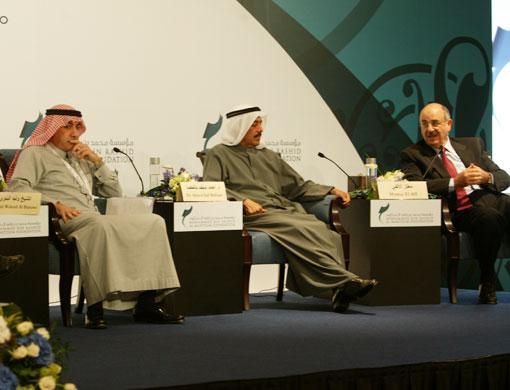Dubai: Panelists and attendees at the regional forum on philanthropy stressed the need to increase the involvement of private sector and to establish mechanisms to enable a partnership with public sector.
The second day of sessions explored avenues for strategic charity through creative planning.
The session was held in collaboration with the Mohammad Bin Rashid Al Maktoum Foundation and the John D. Gerhart Centre for Philanthropy and Civic Engagement at the American University in Cairo.
During a session titled, 'Key challenges facing Arab philanthropy: suggestions for a way forward,' Dr Ahmad Bel Hasa, founder and chairman of Belhasa International Co., said the Arab world contributed to a number of philanthropic initiatives, but what the region needs was to organise these individual efforts by involving all sectors of the community.
He called for more unity and coordination among charity organisations "so as to avoid competing with each other in a country facing a crisis".
Coordination
"Every institution comes up with philanthropic initiatives during a crisis, and it will seek to meet basic demands, but on the regional level at least the charities should coordinate their efforts," he said.
Panelist Dr Abdullah Kuttab, Director-General Association and founder of Arab Foundations Forum, wanted charities to boldly address the root cause of every Arab country.
"We have a demographic tsunami in the region along with an immediate need to create 100 million jobs to curb the high unemployment rates.
"In Saudi Arabia we have a high unemployment rate, specifically among women," he said.
One of the participants said some Arab countries cannot afford to find creative solutions "when their public do not have their basic needs met".
"The governments should start granting social securities to strengthen and empower weaker section in our societies," she said.
Dr Kamel Mohanna, President of Amel Association in Lebanon and General coordinator for the Arab NGO's Forum, said that every Arab country has its own experiences in philanthropy as well as its own failures.
Shaikh Waleed Al Banawi, Education and Social Responsibility Chairman of Young Presidents' Organisation, wanted the participants to learn from the experiences of Dubai and Singapore in effectively galvanising private sector and improving the lot of the society.
Earlier, participants at a working group session held on the sidelines of the regional forum looked at ways to addressing the impact of philanthropy and plans to build strategies for long-term change.
The study conducted by the American University of Cairo on philanthropy in eight Arab countries came in for praise.
Dr Salvatore LaSpada, Chief Executive of Institute for Philanthropy in London, told Gulf News that the importance of the study is that it is driven by research and asking the question 'can we adapt to modern concepts'.
Fundraising
During the workshop, he advised NGOs and organisation involved in philanthropy to draw a design outlining their outputs and impacts. He said the entire process requires constant monitoring and sometimes a shift in strategy.
"We need to realise that fundraising is a science. We don't have development centres in the Arab world and the appropriate staff to communicate the practices, resources and results of the philanthropic work," said Princess Dina Mired, Director of King Hussain Cancer Foundation.
She attributed the success and efficiency of the King Hussain Cancer Foundation to team work between the board, the director and fundraising capabilities.
For a philanthropic healthcare organisation to thrive, an institutionalised fundraising department is vital, she said adding that it must be separated from the medical work because it may be misconstrued by donors as an attempt to cover salaries and costs.












